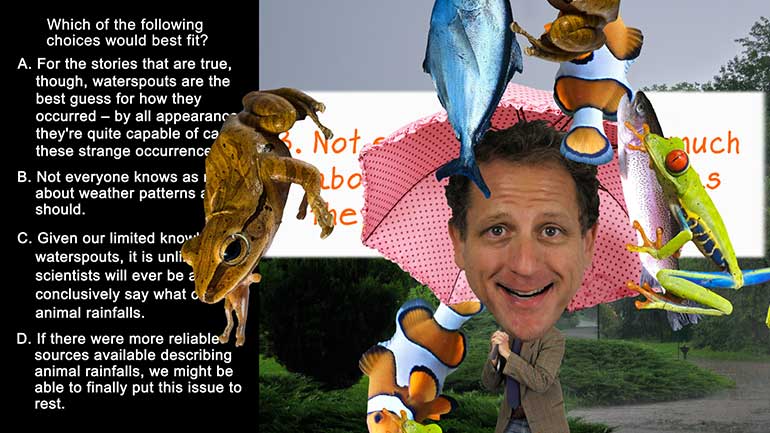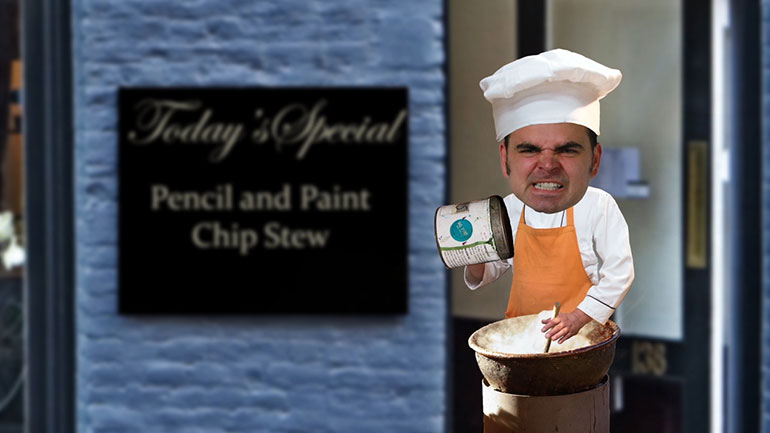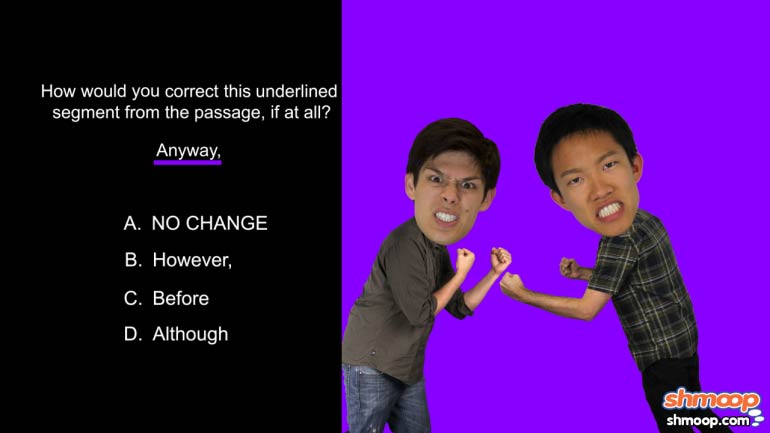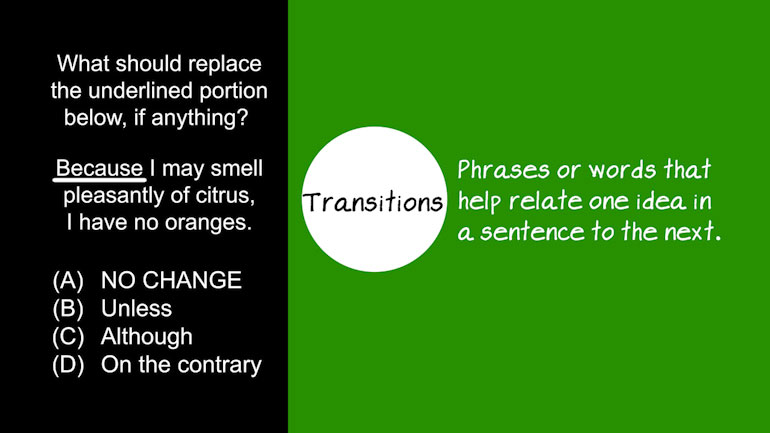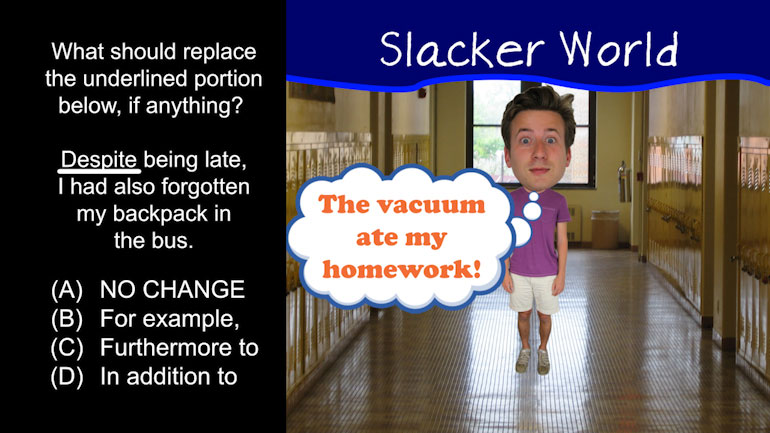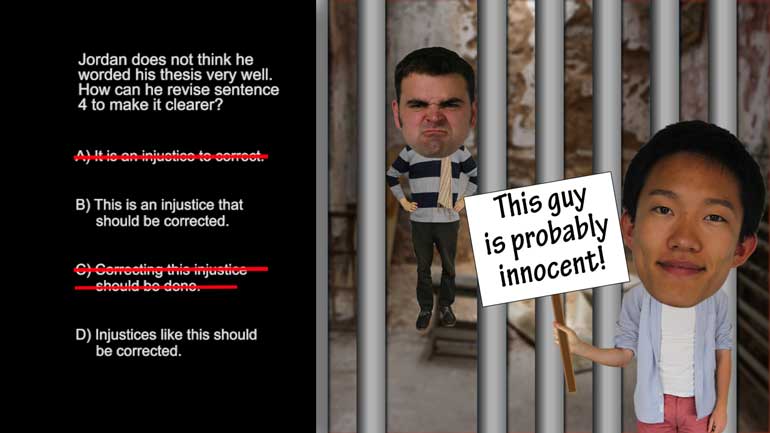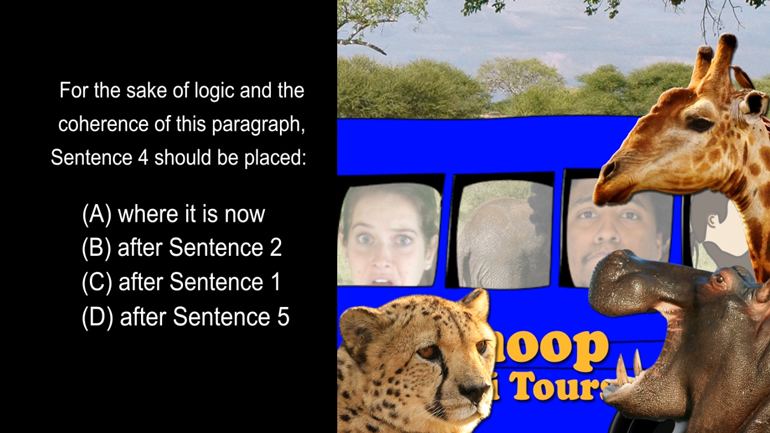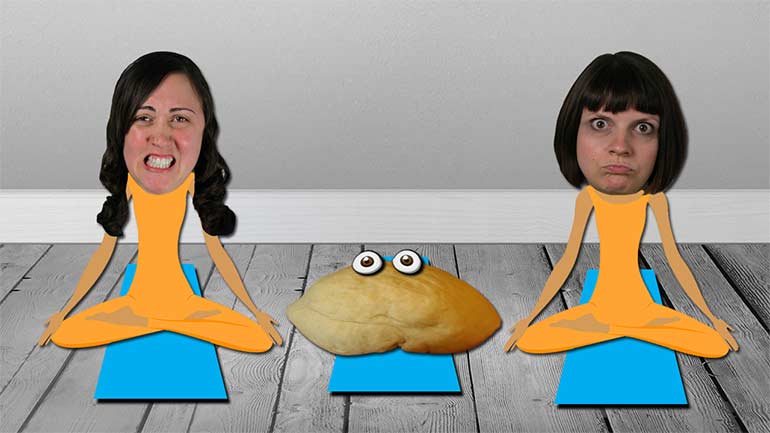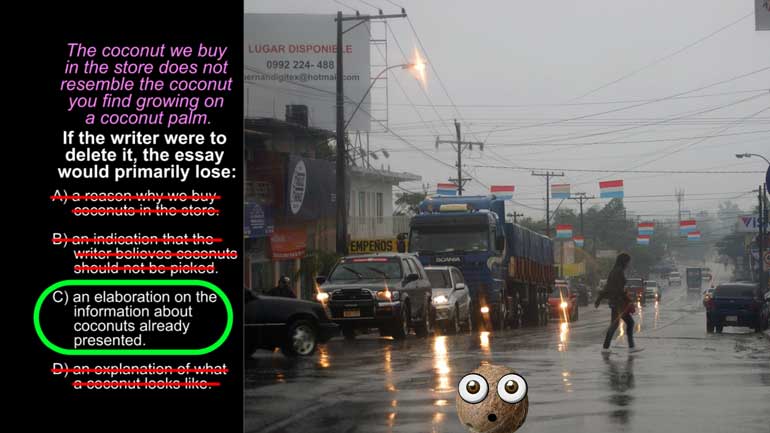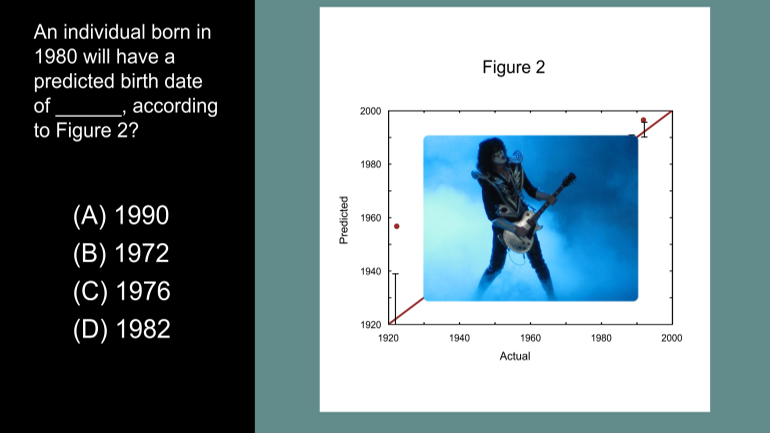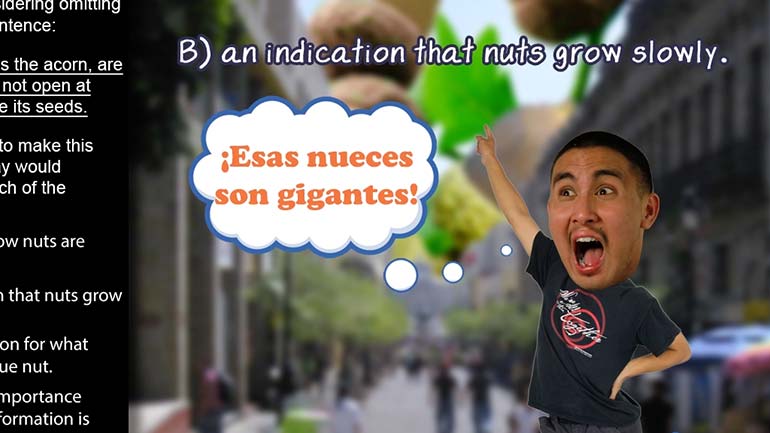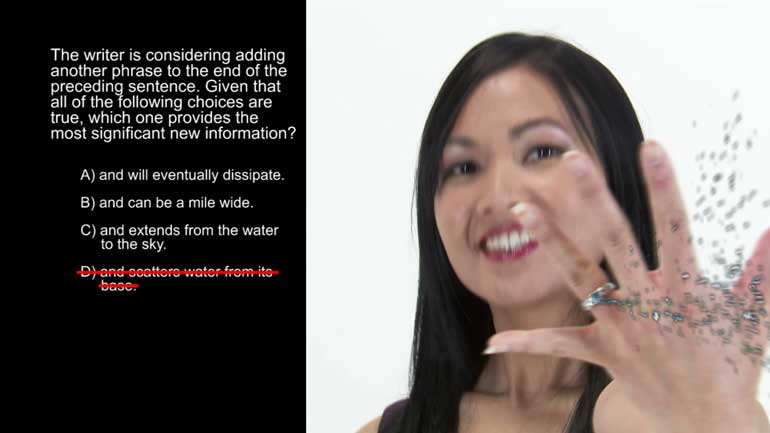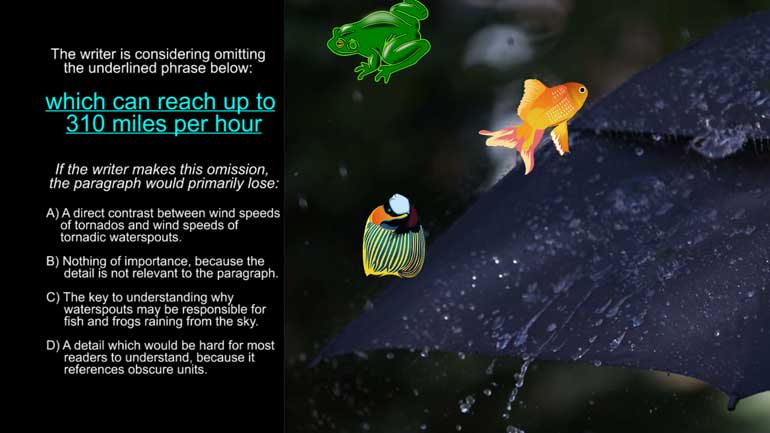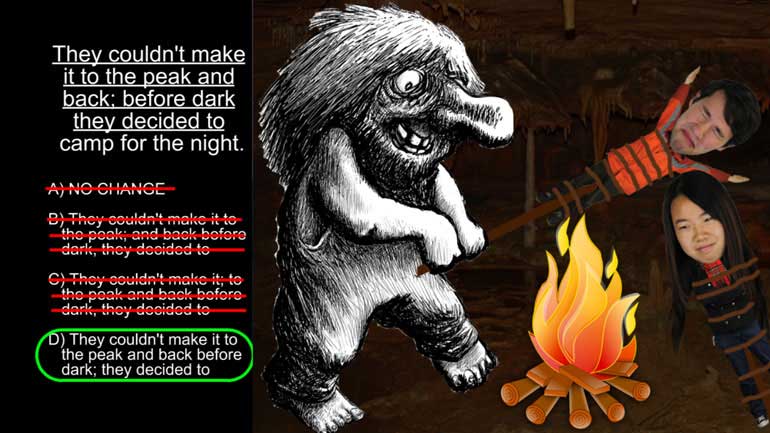ShmoopTube
Where Monty Python meets your 10th grade teacher.
Search Thousands of Shmoop Videos
Expository Texts Videos 28 videos
ACT English: Passage Drill 3, Problem 15. Which choice does the best job of summing up the main point of the article?
PSAT 1.22 Writing Diagnostic. Which choice results in the passage having the most appropriate concluding sentence?
ACT English 1.2 Organization 305 Views
Share It!
Description:
ACT English: Organization Drill 1, Problem 2. Picking the right transition word.
- Rhetorical Skills / Organization: Sentences and Paragraphs
- Product Type / ACT English
- English I EOC Assessment / Introductory and Concluding Paragraphs
- English I EOC Assessment / Organization
- Expository Texts / Rhetorical Devices and Transistions
- Essay Revision / Coherence, Organization, and Word Choice
- Essay Revision / Rhetorical Effectiveness and Use of Organization
- Rhetorical Skills / Organization
Transcript
- 00:04
Here's your Shmoop du jour, brought to you by the wheels on the bus. Like Congress, they
- 00:08
just go 'round and 'round.
- 00:10
What should replace the underlined portion below, if anything?
- 00:15
Despite being late, I had also forgotten my backpack in the bus.
- 00:24
"Being late" is not a great thing... and neither is forgetting a backpack; both kinda
Full Transcript
- 00:27
exist in the same slacker world.
- 00:32
We have to keep this relationship in mind as we try to find the right transition word
- 00:36
or phrase to connect these ideas.
- 00:38
Choice (A) sets up the wrong relationship by using "despite." This word usually
- 00:43
sets up some kind of contrast. "My grandma is cool, despite all the camouflage she wears,"
- 00:49
would be an example.
- 00:50
We're not in the market for contrast in this sentence, however, so (A) is off the
- 00:54
table.
- 00:55
(B) is incorrect because this sentence stands alone, not as an example.
- 01:00
Something like this might have worked: "That kid was always slacking. For example, he was
- 01:05
continually late and always forgot his backpack."
- 01:08
We're trying to find the word or phrase that shows how these two things go together,
- 01:13
not how one is an example of the other.
- 01:19
Choice (C) is an incorrect usage of the transition "furthermore."
- 01:23
"Furthermore" is what's known as a conjunctive adverb, not a disease, and it's typically used to relate
- 01:29
two independent clauses to each other.
- 01:31
Something like, "I was late; furthermore, I had forgotten my backpack," would be on
- 01:36
the right track.
- 01:37
The trouble here is that "being late" is not an independent clause, meaning that's
- 01:42
it not a sentence that can stand on its own.
- 01:44
Also, "furthermore" comes before the two ideas we're trying to connect, rather than
- 01:48
in between them.
- 01:50
(D) wins the day by using the prepositional phrase "in addition to," which correctly
- 01:55
relates "being late" with the independent clause "I had also forgotten my backpack
- 02:01
in the bus."
- 02:02
Hey, at least there are worse times
- 02:23
to be late.
Related Videos
ACT English: Punctuation Drill 2, Problem 3. Where does the semicolon fit best?
ACT English: Punctuation Drill 2, Problem 2. Where should the semi-colon be placed?
ACT English: Punctuation Drill 3, Problem 1. How should this sentence be changed so that it is grammatically correct?
ACT English: Punctuation Drill 3, Problem 2. How should we properly hyphenate the words in this sentence?
ACT English: Punctuation Drill 3, Problem 4. Which choice best formats this list of items?
